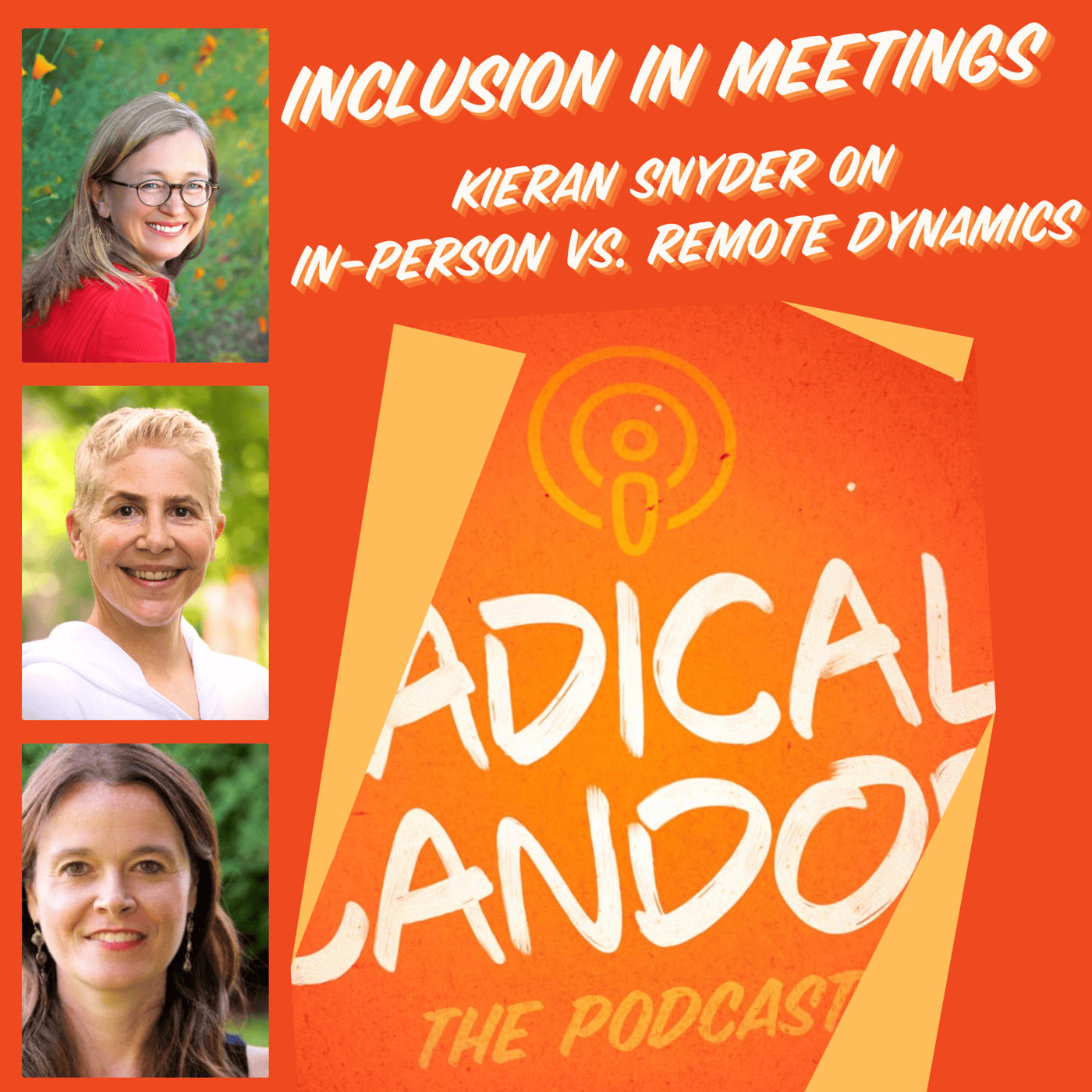Retain Your Team During the Great Resignation 3 | 11
You’ve likely heard about the Great Resignation — perhaps you’re even one of the millions of people who’ve bid their jobs farewell over the past few...
3 min read
Brandi Neal May 30, 2021 11:59:36 PM

With more teams working remotely over the past year than ever before, we've received a few questions from folks about how to practice Radical Candor in remote workplaces. On this episode of the Radical Candor podcast, Kim, Jason and Amy talk about how to give feedback to remote employees, what works for the remote Radical Candor team and why it's important to allow your workers time to grieve and heal from the trauma of the past 18 months.
Listen to the episode:
A poll from Gallup reveals some of the things that cause a high burnout rate among remote workers include feeling detached from team and organizational culture and feeling lonely and isolated. With any team, the foundation of trust is creating a culture of psychological safety. This is crucial for building trust with remote employees you may have never met in person. Business Insider recently published a piece about this noting that “psychological safety is critical for this environment, as working remotely often blurs the lines between an employee's personal and professional life.”
Radical Candor and its sister company Just Work have always been entirely remote. In fact, this podcast is recorded from four different locations. Some of the problems folks run into when going from in-person to remote work is thinking they can replicate the in-person office experience in a remote environment, but it's not an apples-to-apples situation.
For example, one person wrote in and said, “I have been reading your book and I love it. A lot of great stories and you cover a ton of management topics. However, a lot of advice you offer is face to face while walking back from a meeting. Any advice on how to apply some of the principles while we transitioned to working from home? I find that I have to schedule meetings to have those conversations and it's not as effective."
Working remotely doesn't mean you have to schedule every interaction with another team member, it just means you have to change how you engage one another.
If you work from home, it’s really important to have quick, frequent interactions with the people you collaborate with. This will allow you to pick up on people’s most subtle emotional cues. Kim says, "I learned this from my boss when I lived in Russia. He made a point of calling me every day from New York, if only for a three-minute check-in call. He had operations in Africa in the 1970s and had learned the importance of frequent communication to pick up on emotional cues from people in far-flung locations."
If you don't want to cold call people, send a text first and ask for a second to chat, or use collaboration tools like Slack or Donut, a virtual personal connection tool.
Historically, we’ve recommended people have Radical Candor conversations in person or on video. But with Zoom fatigue, is that still the case? A new study revealed that video meetings are actually less collaborative than phone meetings.
Remember that everyone is different, which is why you need to ask each member of your team what works for them. While some people may want to hop on the phone several times a day to talk, others might find this disruptive and stressful. Don’t assume that what works for one person will work for every person.
This is where the Care Personally aspect of Radical Candor is crucial. Take time to nurture your relationships with each member of your team so you know how to effectively engage with them and vice versa.
For those who like to work with others, open a remote co-working Zoom room. This allows people to log on and work with each other similar to how they would in an office. You can turn off your video and go on mute then check in with the group every hour or so for a quick meditation or some group physical activity or just take a few minutes to talk.
Improvising Radical Candor, a partnership between Radical Candor and Second City Works, introduces The Feedback Loop (think Groundhog Day meets The Office), a 5-episode workplace comedy series starring David Alan Grier that brings to life Radical Candor’s simple framework for navigating candid conversations.
You’ll get an hour of hilarious content about a team whose feedback fails are costing them business; improv-inspired exercises to teach everyone the skills they need to work better together, and after-episode action plans you can put into practice immediately.
We’re offering Radical Candor podcast listeners 10% off the self-paced e-course. Follow this link and enter the promo code FEEDBACK at checkout.
The Radical Candor Podcast theme music was composed by Cliff Goldmacher. Order his book: The Reason For The Rhymes: Mastering the Seven Essential Skills of Innovation by Learning to Write Songs.

You’ve likely heard about the Great Resignation — perhaps you’re even one of the millions of people who’ve bid their jobs farewell over the past few...

Kieran Snyder, founder of nerd processor and co-founder of Textio, joins the Radical Candor podcast to explore inclusivity in meetings, revealing...

In this episode of the Radical Candor podcast Kim and Jason answer listener questions and share their experiences about being a boss who's younger...